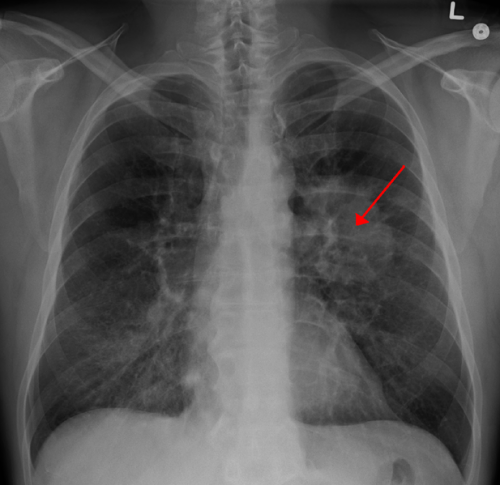KRAS G12C inhibitor sotorasib may offer long-term clinical benefit in patients with non-small cell lung cancer

Patients with non-small cell lung cancer (NSCLC) treated with the KRAS G12C inhibitor sotorasib (Lumakras) had a two-year overall survival rate of 32.5 percent, according to data from the CodeBreaK 100 clinical trial presented during the AACR Annual Meeting 2022, held April 8-13.
Based on the primary analysis from this trial, the U.S. Food and Drug Administration approved sotorasib in May 2021 for the treatment of patients with locally advanced or metastatic NSCLC whose tumors harbor the KRAS G12C mutation and who have received prior therapies.
"Longer-term follow-up data are important to better define the safety and efficacy of sotorasib since it is the first-in-class KRAS G12C inhibitor therapy to be approved for this patient population," said presenter Grace K. Dy, MD, chief of thoracic oncology and professor of oncology at Roswell Park Comprehensive Cancer Center, Buffalo, New York. "For this particular analysis, we also sought to determine whether there are potential biomarkers that can identify patients who will derive long-term benefit from sotorasib treatment."
Dy and colleagues analyzed data from 174 patients who received sotorasib in the combined phase I and phase II studies of the trial. Most patients had received an average of two prior lines of therapy, including anti-PD-1 or anti PD-L1 immunotherapy and platinum-based chemotherapy.
In this updated analysis, which included NSCLC patients receiving the FDA-approved dose of sotorasib at 960mg daily, 40.7 percent of patients experienced a partial or complete response to sotorasib, with a median duration of response of 12.3 months. The median progression-free survival and overall survival were 6.3 months and 12.5 months, respectively. The overall survival rate was 50.8 percent after one year of treatment and 32.5 percent after two years.
Long-term treatment with sotorasib was well tolerated, with mild and manageable toxicities and no new safety concerns in patients continuing onto sotorasib beyond one year.
"Given that the majority of NSCLC patients enrolled had previously received immunotherapy and platinum-based chemotherapy, it is notable that the two-year overall survival rate was almost 33 percent, which is very favorable in comparison to historical control treatment," said Dy. "For example, the two-year overall survival rate in patients with non-squamous NSCLC treated with the chemotherapy agent docetaxel with or without the anti-VEGFR antibody therapy ramucirumab as second-line treatment is expected to range between 15 and 22 percent.
"The survival outcomes and toxicity profile make sotorasib the treatment of choice compared to salvage chemotherapy in patients who did not respond to previous therapies," added Dy.
In addition, prolonged tumor response was independent of PD-L1 expression and was also observed in tumors with low PD-L1 levels. "Our findings also provide rationale for studies that investigate the incorporation of sotorasib earlier in the treatment course to improve the outcomes for NSCLC patients who are less likely to benefit from immunotherapy," Dy added.
The investigators performed additional analyses on both tumor and blood samples to identify biomarker profiles associated with durable clinical benefit. These studies showed that prolonged clinical benefit was observed regardless of tumor mutation burden, PDL1 expression, and STK11 co-mutation status.
The limitations of this study include that CodeBreaK 100 is a single-arm, non-randomized trial. A randomized, global phase III trial (CodeBreaK 200) is ongoing that includes docetaxel as the comparator. "We eagerly await the results of the phase III study, which likely will be available later this year, and expect that they will confirm our findings from CodeBreaK 100."



















